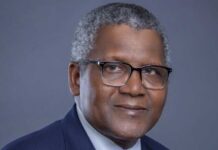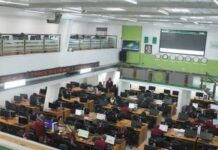Electricity failures inflate manufacturers’ generator bill to N1tn – MAN
CHIGOZIE AMADI
Manufacturers spent N1.11tn on alternative energy sources in 2024 due to persistent power supply challenges, a new report by the Manufacturers Association of Nigeria released on Monday, has revealed.
The report, titled MAN Economic Review for the Second Half of 2024, showed that energy-related costs rose by 42.3 per cent from the N781.68bn recorded in 2023, as operators battled frequent grid collapses and surging diesel and petrol prices.
Director-General of the Manufacturers Association of Nigeria, Segun Ajayi-Kadir, disclosed that “manufacturers spent N404.80bn in the first half of 2024, which jumped by 75 per cent to N708.07bn in the second half.”
According to Ajayi-Kadir, an inadequate and unreliable power supply drove manufacturers’ high energy costs despite a marginal improvement in daily electricity availability.
In the report, the Food, Beverage, and Tobacco sector emerged as the highest spender on alternative power, with N229.41bn, up from N182.76bn in the previous year. The Chemical & Pharmaceutical sector followed closely, doubling its power spend to N208.68bn in 2024.
Also, the Non-Metallic Mineral Products industry spent N118.49bn, representing a 33.7 per cent rise. At the same time, the Textile, Apparel, and Footwear sector witnessed a fourfold increase in energy costs, jumping from N6.97bn in 2023 to N26.45bn in 2024.
MAN acknowledged that members’ electricity supply increased in the second half of the past year to 15.2 hours, up from 11.4 hours per day in H1 2024, but at a cost of higher tariffs.
“On a half-on-half basis, electricity supply rose from 11.4 hours per day in H1 2024 to 15.2 hours in H2 2024,” Ajayi-Kadir noted. “However, electricity tariffs surged by over 200 per cent for Band A consumers, significantly increasing manufacturing costs.
“While power availability improved, many manufacturers faced frequent outages and costs, as the country witnessed 12 national grid collapses. This remained a major concern.”
Despite a rise in average daily electricity supply to 13.3 hours in 2024, up from 10.6 hours in 2023, manufacturers continued to depend heavily on alternative energy sources to maintain production.
The report added that soaring energy costs, inflationary pressures, and exchange rate volatility contributed to a difficult operating environment. It noted that these challenges pushed many manufacturers to scale back investments and grapple with low consumer demand.
Ajayi-Kadir lamented that the manufacturing sector faced significant hurdles in 2024, including high inflation, forex volatility, surging production costs, and declining consumer demand. He also warned that industrial growth and productivity may remain subdued unless macroeconomic stability is restored and energy reliability improved.
The PUNCH reported in 2024 that MAN has repeatedly called for a reprieve for the sector, as many manufacturers ditched the national grid to self-generate power through gas and solar energy sources.
Stakeholders, including the Former President of the Chartered Institute of Bankers, Prof Segun Ajibola, decried how energy has become a seemingly intractable challenge to Nigeria’s economic growth.
Ajibola expressed his frustration that multiple governments have failed in energy generation and supply, and urged the Federal Government to work harder to provide a satisfactory resolution.
“I have said it time and again that we need a complete overhaul of our power sector,” Ajayi-Kadir stressed. “If countries like South Africa and Egypt could talk about 20,000 to 30,000 megawatts of electricity, and distribute it to the industrial sector. Why should we still celebrate 6,000MW when our population is about three times that of those countries?
“What exactly is our problem here? Somebody still needs to determine where the problem lies. I would say we have not dug deep enough to know.”
Ajibola criticised the country’s present concentration on thermal sources, poor technological pace, and called for a “new feasibility review… to know what others are doing that we (Nigeria) are not doing?”
According to the former CIBN president, Nigeria’s energy sector management needs a “complete paradigm review”, since it faces challenges that most African countries have overcome.
He recommended that the Ministry of Power needs a total overhaul, stating, “Whatever they are doing now, it is not working enough and may not take us to the promised land. We need an orientation for a new mindset.”
Further, the MAN H2 Economic Review report showed that manufacturers’ finance costs hit N1.3tn in 2024, as interest rates climbed to 35.5 per cent, following the Central Bank of Nigeria’s decision to hike the Monetary Policy Rate to 27.50 per cent.
Despite these challenges, local sourcing of raw materials improved to 57.1 per cent from 52.0 per cent in 2023, driven by high import costs and government incentives.
MAN DG Ajayi-Kadir called for urgent reforms to improve access to affordable financing and reliable energy, stressing that “these are critical for sustaining growth and enhancing productivity in Nigeria’s manufacturing sector.”

























